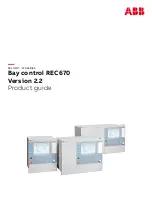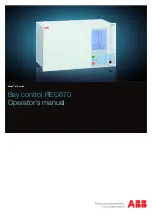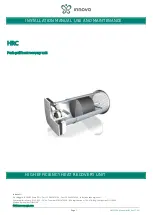
Glass and Material Lift
GML 800+
32
Operating Manual
GML 800+
Installing the
steering arm:
3)
g)
Set up the lift on firm and level ground only.
Ensure that all caster safety brakes on the chassis are engaged during set up.
g)
In working position
always align the
swivel casters with
maximum
distance
between
each other
f)
f)
10.
Disengage the spring bolts (f) on the
socket pins (g) at the rear end of both
outriggers and completely remove the spring
Facing
backwards
Max.
Distance
Facing
forward
bolts. Keep both spring bolts within
easy
reach.
11.
Place the steering arm (3) on both socket
pins (g) and secure it with the previously
removed spring bolts (f).
In order to position the lift so that the
maximum pay load may be raised, the large
swivel casters on both sides of the chassis
have to be so aligned that the maximum
distance between them is achieved, as
depicted in the figure beneath.
Aligning casters for maximum load
capacity:
1.
Front casters are
-
facing FORWARD
-
and locked.
2.
Rear casters are
-
facing BACKWARDS
-
and locked.
WARNING:
1.
NEVER operate the GML/K unless the weight box is completely filled!
2.
Never operate the lift with only one outrigger!
3.
Both outriggers must be pointing in the same direction! Otherwise the lift must not be operated!
4.
Never move the lift with a raised load! Only allow for minor position changes.
5.
Avoid sudden movements.
Conversion from operating position GML/Std.
Aligning the swivel casters for maximum loading capacity
Never move the lift with a raised load!
Only allow for minor position changes.
Avoid sudden movements.
WARNING:
The loading capacity varies subject to model, design and installed loading accessory.
Never exceed the values listed in the loading capacity chart and the load center
chart when raising a load.
CAUTION:
Aligning swivel casters
for maximum loading capacity
















































